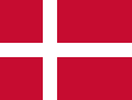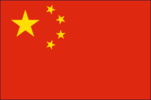Cold atomic gases have seen revolutionary developments in the last 15-20 years since the Nobel prize winning realization of a Bose-Einstein condensate with atoms in 1995. Around 2000 a Fermi gas of atoms was cooled to degeneracy, providing a paradigmatic system which is the basis of of condensed-matter and solid-state physics. By now, the implementation of low-dimensional geometries, lattice potentials that mimic crystals, spin-orbit couplings that resemble solid-state surface interactions, and a number of recent achievements in non-equilibrium dynamics, demonstrates that cold atomic gases effectively provide us with a quantum simulation tool in which to test, explore, and optimize the models applied in other fields of physics. One example is the successful realization of the so-called Hubbard model which is believed to contain the main physics of high-temperature superconductivity and magnetic phases, both of which could help revolutionize designer materials for use in future technology.
The workshop will focus on the latest developments in the field of cold atomic gases where the invited research groups and scientists in both Denmark and China have made recent contributions at the forefront of the field. This includes strongly interacting Bose and Fermi gases with and without imbalance, magnetism in low-dimensional systems, spin-orbit coupled gases, long-range interacting cold dipolar molecular gases, and phases of cold atoms in optical lattices.
Main organizers:


Traveling to Denmark by plane can be done in many different ways. Copenhagen Airport is the biggest in the region and is connected to all major airports in Europe (Frankfurt, Paris, Amsterdam, London, etc.). Another option is to fly into Billund Airport which can also be reached from all major airports. From Billund there is a bus (Busline 912X or 913X) to Aarhus (travel time of about two hours).
Aarhus and Aarhus University are located either a short flight (25 minutes) from Copenhagen or via train (about three hours travel time). Aarhus Airport is located about 45 minutes outside the city center. There is a very convenient bus from Aarhus Airport to the university or to the city center. The bus lines are connected to the flight schedule.
We recommend traveling into Denmark on Sunday through Copenhagen and then taking a short flight to Aarhus airport. We will then be able to meet participants at Aarhus airport and guide you to the hotel. From Sandbjerg one can travel by plane from Sønderborg Airport (10 km from Sandbjerg) to Copenhagen and spend a few days exploring our capital city.
Hotel accommodation for the first days in Aarhus will be arranged in the city center. The Sandbjerg conference center has on-site accommodation.
The scope and the limited space available implies that the workshop is by invitation only.
Our intention is to make the workshop registration free and to cover as many of the local costs and meals as possible. We expect that no local expenses have to be paid for by the participants.
In return, we ask the participants to cover their travel expenses, particularly plane tickets. Local travel costs between the different conference venues will be covered.
Registration is closed.